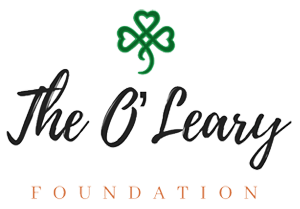- Heather Forrest
- Jul, 22, 2020
- Blog
- Comments Off on Abuse Among Immigrant Communities
(Both Spanish and English Translations Are Provided Below.)
El suroeste de Michigan es el hogar de inmigrantes de todo el mundo. El censo de 2019 dice que más de 600.000 personas que viven en Michigan nacieron en otros países—más de 6% del población. Más de la mitad de los inmigrantes en Allegan han vivido en los Estados Unidos por más de 20 anos; cerca de 40% son ciudadanos naturalizados. Vienen de América Latina, Europa, Asia, y un numero pequeño de personas de África y Canadá.
Como inmigrante, podría ser difícil saber a donde se puede ir en una crisis. La familia está lejos, y sea difícil conocer gente con la que se puede hablar abiertamente sobre lo que pasa en casa. Si alguién en la familia no tiene documentos de ciudadania, preguntar por asistencia en situaciones de violencia podría ser peligroso. Sin embargo, es importante saber que siempre hay asistencia sin importar tu nacionalidad.

En Sylvia’s Place, lo más importante es la seguridad de quienes nos visitan. No es necesario ser ciudadano no es necesario para recibir nuestros servicios. Cuando alguien escapa de una situación de abuso doméstico, es posible que no tenga consigo sus documentos o papeles. Lo entendemos, y trabajamos para proporcionar un espacio seguro sin importar tu nacionalidad.
A parte de Sylvia’s Place, estas otras organizaciones tienen recursos para inmigrantes que han sido abusado:
- Justice for Our Neighbors: En JFON, los abogados y otro personal ayudan a las personas a navegar la ley de inmigración. Durante la pandemia de COVID 19, ellos están trabajando con personas en línea. La oficina de Kalamazoo acepta casos relacionados con la ley de inmigración humanitaria (incluidas las peticiones de la Ley de Violencia contra la Mujer), visas U (para víctimas de delitos), visas T (para proporcionar alivio a las víctimas de trata de personas), peticiones de Estatus de Inmigrante Juvenil Especial (para menores no acompañados que puede haber sido abandonado, abusado o descuidado por uno o ambos padres), casos de asilo, solicitudes de tarjeta de residencia y solicitudes de naturalización. Puede comunicarse con la oficina nacional en njfon.org. Puede comunicarse con la oficina de Kalamazoo directamente en jfonmi.org/kalamazoo o llamar al (269) 743-2501.
- Michigan Immigrant Rights Center: MIRC se inició como un servicio para campesinos inmigrantes, y se ha expandido para abordar una variedad de problemas sociales importantes para la población inmigrantes. Su línea directa confidencial está abierta de lunes a viernes de 9 a.m. a 5 p.m. y ofrece asesoramiento legal gratuito sobre problemas desde abuso doméstico hasta derechos laborales; el número es (734) 239-6863. Para más información, visita org/.
- Migrant Legal Aid: Situado en Grand Rapids, Migrant Legal Aid ofrece servicios para los inmigrantes, particularmente campesinos migrantes. Su proyecto, Migrants Overcoming Violent Environments (MOVE) ofrece asistencia legal para órdenes de protección personal, divorcio, problemas de custodia de los hijos, ley de inmigración, y para obtener tarjetas verdes (green cards), para las mujeres y los niños que han sido víctimas de la violencia doméstica. Su número de teléfono es (616) 454-5055 o 1-800-418-3390 y su correo electrónico es office@migrantlegalaid.com. Para más información, visita org.
(English)
Southwest Michigan is home to immigrants from around the globe. According to the 2019 census, there were over 600,000 foreign-born people living in Michigan, or over 6% of the total population[1]. More than half of the immigrants living in Allegan County have been living in the US for over twenty years; around 40% are naturalized citizens. This includes people from Latin America, Europe, and Asia, with smaller numbers from African countries and from Canada[2].
As an immigrant, it can be difficult to know where to go in a crisis. Family networks might be far away, and it might be challenging to determine who is safe to talk with about what happens in the home. Particularly if someone in the family is undocumented, getting help might seem like an invitation for danger. However, it is important to know that there is help available regardless of your nationality.
At Sylvia’s Place, the most important thing we can do is keep people safe. Citizenship is not a requirement to receiving services here. When a person is fleeing domestic abuse, their papers may not always be accessible to them; we recognize this, and we work to provide a safe space regardless of immigration status.
Outside of Sylvia’s Place, resources for immigrants experiencing abuse is available from these organizations:
- Justice For Our Neighbors: At JFON, attorneys and other staff help people to navigate immigration law. During the COVID 19 pandemic, they are working with people online instead of in person. The Kalamazoo office accepts cases in humanitarian immigration law (including Violence Against Women Act petitions), U-visas (for victims of crime), T-visas (to provide relief to trafficking victims), Special Immigrant Juvenile Status petitions (for unaccompanied minors who may have been abandoned, abused, or neglected by one or both parents), asylum cases, green card applications, and naturalization applications. The national office may be reached at org. The Kalamazoo office may be reached directly at www.jfonmi.org/kalamazoo, or by calling (269) 743-2501.
- Michigan Immigrant Rights Center: MIRC was started as a service for immigrant farm workers, and has expanded to address a wide variety of social issues relevant to immigrants. MIRC’s office is located in Kalamazoo. Their confidential hotline is open weekdays from 9 a.m. to 5 p.m. and offers free legal advice on problems from domestic abuse to employment rights; this number is (734) 239-6863. For more information, visit https://michiganimmigrant.org/.
- Migrant Legal Aid: Located in Grand Rapids, Migrant Legal Aid offers services for immigrants, with an emphasis on migrant farmworkers. Their Migrants Overcoming Violent Environments (MOVE) project offers legal assistance pertaining to personal protection orders, divorce, custody issues, immigration, and obtaining green cards, for women and children who have been victims of domestic violence. They can be reached by phone at (616) 454-5055 or 1-800-418-3390, or by email at office@migrantlegalaid.com.
Written by Anna Clements
[1] https://www.census.gov/quickfacts/MI
[2] Marshall-Shah, Simon, “A Snapshot of Allegan County Immigrants,” Michigan League for Public Policy (2020) https://mlpp.org/immigrantspotlight2020/Allegan.pdf
Sylvia’s Blog
- Wine Tasting 2025 May 19, 2025
- Comorbid Dangers: Financial Abuse November 4, 2024
- Comorbid Dangers: Domestic Violence & Animal Abuse September 16, 2024





